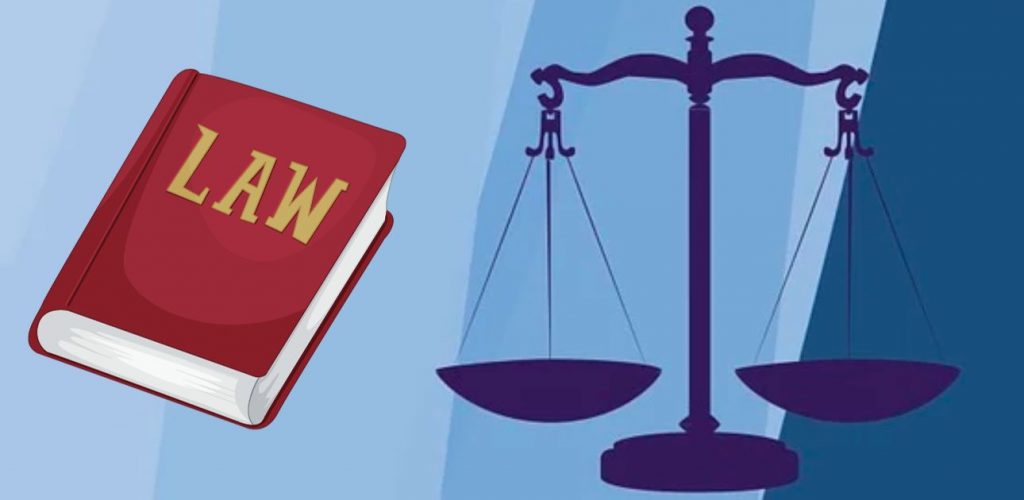When facing a divorce or family dispute, the right legal guidance is crucial. In Brisbane, experienced divorce lawyers provide support to ensure that clients are thoroughly prepared-whether heading to court or opting for mediation. The benefits are clear: streamlined dispute resolution, lower costs, and faster outcomes. Below is an in-depth look at how a divorce lawyer in Brisbane can help you navigate the separation process.
Navigating the Legal Landscape in Brisbane
Understanding Court Proceedings
A divorce lawyer brisbane specialises in explaining every aspect of family court proceedings, helping clients navigate what can often feel like an overwhelming legal process. These lawyers take the time to clarify court procedures, explain the necessary documentation, and outline expected timelines. This detailed preparation helps reduce anxiety and empowers individuals throughout the divorce process.
With approximately 48,700 divorces granted in Australia in 2023, a clear understanding of court protocols is more important than ever. Experienced divorce lawyers help clients understand the nuances of the law so that they can face court with confidence.
Lawyers also discuss the role of independent business valuations, particularly in property settlements and financial separations. These valuations ensure that the court-approved settlements reflect an unbiased assessment of assets, allowing for fair outcomes in line with court expectations.
Preparing Comprehensive Case Documentation
Gathering evidence and organising documentation is a key part of preparing for court. A Brisbane divorce lawyer assists in collating financial records, property valuations, and any critical incident reports. This preparation builds a strong foundation for your case before proceedings begin.
Legal professionals encourage their clients to bring clarity to complex financial scenarios. It is essential to work with authorised business valuers to secure reports that meet the rigorous standards required by the court, especially when property settlements are at stake.
By providing detailed checklists and step-by-step guidance, a divorce lawyer helps to ensure that no critical documentation is overlooked. Such thorough preparation can make all the difference in court outcomes.
Embracing Mediation as a Viable Alternative
Cost-Effectiveness and Efficiency
Mediation offers a practical and cost-effective alternative to lengthy court battles. According to industry reports, traditional legal fees for divorce proceedings in Queensland can reach upwards of $175,000 per party. In stark contrast, mediation services are available for under $4,000 in total. This substantial difference in cost makes mediation an attractive option for many.
Divorce lawyers in Brisbane often stress to their clients the advantages of mediation. Recognising that funding cuts to family and federal circuit courts have increased processing times, lawyers advise opting for mediation to avoid prolonged court delays.
This cost-effective resolution process is particularly appealing to clients who wish to save both time and money. With mediation success rates frequently reaching as high as 59% for wholly or partially successful outcomes, many individuals find mediation a wise choice to settle disputes quickly.
Building Trust and Resolving Conflict
Mediation is more than just a legal formality-it helps build trust between the parties involved. Experienced mediators help defuse tense situations and refocus discussions on practical, mutually acceptable solutions. This approach is especially important in family conflicts where emotions can run high.
Nationally accredited mediators, working closely with divorce lawyers, highlight how mediation allows parties to feel more heard and understood. This sense of respect and collaboration can be a vital part of creating a smoother transition post-divorce.
Trust-building is often one of the most beneficial outcomes of mediation. Divorcing parties may find that constructive conversations during mediation lead to agreements closely matching what the court would eventually approve, reducing the need for further litigation.
The Role of a Brisbane Divorce Lawyer in Mediation Preparation
Tailoring Mediation Strategies
A dedicated Brisbane divorce lawyer tailors strategies and mediation approaches to the specifics of your case. This involves evaluating complex family dynamics and anticipating potential sticking points. With mediation often producing results comparable to court-approved settlements-as confirmed by research showing over 85% similarity-having the right approach is critical.
Lawyers work closely with mediators to establish clear objectives. They ensure that every point of negotiation is addressed, reducing ambiguity and setting clear expectations on both sides. This proactive approach increases the likelihood of a successful mediation outcome.
By structuring customised mediation plans, lawyers provide clarity and direction. They outline potential scenarios, discuss negotiation tactics, and help manage expectations to keep mediation sessions focused and productive.
Managing Legal Risks During Mediation
Even though mediation is less formal than court proceedings, it is essential to use expert legal guidance when negotiating agreements. Brisbane divorce lawyers assist in identifying and managing legal risks that might arise during mediation. They ensure that any agreement reached is not only fair but also legally binding.
Lawyers help clients understand the implications of various settlement terms and negotiate supportive clauses that protect their interests. This kind of expert oversight can prevent future complications and reduce the chance of litigation down the line.
In reviewing settlement agreements, lawyers also advise on specific areas that might require additional legal safeguards. This expert preparation often means the difference between a lasting settlement and further legal problems later on.
Understanding the Advantages of Mediation Over Traditional Court Proceedings
Avoiding Prolonged Legal Battles
With court processing times increasing due to recent funding cuts, mediation represents a timely alternative to drawn-out litigation. Many clients in Brisbane are choosing mediation to avoid the stress and uncertainty of the court system.
The streamlined nature of mediation means that agreements can be reached more quickly. This efficiency is especially valuable in family matters where prolonged disputes can have long-lasting emotional impacts.
Lawyers emphasise that shorter resolution times not only reduce stress but also provide financial benefits. With mediation, both parties can secure mutually agreeable solutions faster, eliminating the need for exhaustive court appearances.
Achieving Fair and Customised Outcomes
Mediation places greater control in the hands of divorcing parties. A Brisbane lawyer provides guidance to help you understand your rights and obligations, paving the way for customised settlements that consider the unique circumstances of each case.
Since mediation fosters open communication, both parties can negotiate terms that reflect their most pressing concerns. This flexibility often leads to outcomes that are more equitable than those imposed by the court.
Every mediation session is custom-tailored to the issues at hand, making it a dynamic alternative to traditional litigation. The focus remains on resolving disputes amicably while keeping the best interests of all family members at heart.
How a Divorce Lawyer Brisbane Coordinates with Other Experts
Collaboration with Family Law Mediators
Collaborative efforts between divorce lawyers and experienced mediators create a robust support network for clients. In Brisbane, this synergy is essential; lawyers advise on legal risks while mediators focus on fostering communication and compromise.
Joint meetings and coordinated discussions ensure both parties’ interests are properly represented. This approach results in mediation sessions that are focused and efficient, spearheading the overall process toward a productive resolution.
Lawyers often work with mediators who have a deep understanding of family dynamics. This collaboration ensures that every aspect of the case, from financial disputes to parenting arrangements, is handled with care and professional insight.
Engaging Independent Business Valuers
Divorce cases frequently involve complex financial and asset divisions. Brisbane divorce lawyers are well-versed in coordinating with independent business valuers. These experts provide objective, court-compliant reports to support property settlements.
Accurate business valuations are critical in reaching agreements that are fair and transparent. Engaging with professionals who specialise in independent valuations ensures that both parties receive an accurate picture of the financial landscape.
These valuations are not only used in court but also serve as the basis for negotiating settlements during mediation. Objective financial assessments help minimise disputes and promote confidence in the fairness of the outcomes reached.
Preparing for the Future: Post-Divorce Mediation and Continuing Legal Support
Long-Term Agreements and Their Enforcement
Once mediation results in an agreement, it is crucial to understand how these arrangements will work in the long term. Experienced Brisbane divorce lawyers help draft agreements that are not only fair but also durable enough to withstand future challenges.

Lawyers explain the legal enforceability of mediation agreements, highlighting how court approval ensures that settlements are binding. This provides a layer of security for both parties, ensuring that any breaches are subject to legal remedies. You may visit https://topschoolsoflaw.com/divorce-lawyers-newcastle-a-practical-guide-to-navigating-separation/ to learn about divorce lawyers newcastle: a practical guide to navigating separation
They also assist in incorporating clauses that account for potential future changes. This foresight helps mitigate the need for future litigation, keeping both parties committed to the agreed terms over time.
Ongoing Legal Guidance and Resource Access
After a mediation agreement has been reached or court proceedings are concluded, continued legal support remains a valuable asset. Brisbane divorce lawyers offer ongoing guidance to help clients adjust to the changes and address any issues that may arise post-divorce.
This support can range from clarifying new financial responsibilities to advising on modifications if life circumstances change. The availability of legal expertise provides peace of mind, ensuring that former disputing parties have a channel to follow should new challenges emerge.
Maintaining a relationship with your lawyer means access to the latest legal advice and best practise guidelines in family law. Clients appreciate this opportunity to stay informed, enabling them to make well-considered decisions in the future.
Key Considerations When Choosing a Divorce Lawyer in Brisbane
Experience and Local Insight
Choosing a lawyer with deep local insight into Brisbane’s family law practices is essential. Experienced divorce lawyers are familiar with the local court systems, mediation services and the unique challenges that Brisbane clients face. They draw on years of practice to offer bespoke advice tailored to specific circumstances.
This local expertise means that your legal representative understands both the procedural aspects and the cultural context, ensuring that complex family issues are handled with compassion and efficiency.
Local experience also translates into a well-established network within the legal and mediation communities. This network helps facilitate smoother negotiations and quicker access to independent experts when needed.
Transparency About Costs and Procedures
Another crucial factor to consider is cost transparency. With the stark contrast between traditional legal fees-which can be exorbitant-and the more affordable mediation process, it is important to know exactly what you are paying for.
Divorce lawyers in Brisbane are upfront about fees, offering clear breakdowns of the costs involved in both court and mediation routes. This information allows you to assess which method best suits your financial and personal circumstances.
Discussing fee structures in detail ensures there are no surprise charges later, providing peace of mind throughout the stressful process of divorce.
The Future of Family Law in Brisbane
Evolving Practices and New Directions
The landscape of family law in Brisbane is constantly changing. New protocols like a “Critical Incident List” and updates to Domestic and Family Violence Practice Directions are signalling significant shifts in how disputes are handled. Divorce lawyers keep abreast of these changes to offer the best advice and representation.
Staying informed about legislative updates and judicial practices allows Brisbane lawyers to provide current legal strategies which can make a real difference when preparing for mediation or court proceedings.
Clients benefit when their legal representatives are proactive, not only managing current disputes but also anticipating future trends in family law. This forward-thinking approach ensures that solutions remain relevant and robust over time.
Increasing Reliance on Mediation Success Stories
Recent studies highlight that mediation is an effective means of resolving family disputes, with high rates of agreement achievement. Research indicates that in over 85% of cases, agreements reached via mediation were substantially the same as those approved by the court. This impressive statistic underpins the growing trust in mediation.
Divorce lawyers in Brisbane are increasingly recommending mediation as a route that delivers results nearly as effective as litigation, with added benefits such as shorter timelines, greater cost savings, and the preservation of cordial relationships.
These success stories provide a compelling argument for anyone considering their options during a divorce. With a track record of favourable outcomes, mediation is fast becoming a preferred choice in family law disputes.
Practical Steps: How to Get Started with Your Divorce Process
Initial Consultation and Case Review
Getting started with a divorce lawyer involves a thorough initial consultation. This meeting is an opportunity to review your case in detail and to discuss your desired outcomes, whether you lean towards court proceedings or mediation.
Your lawyer will listen to your concerns and start building a comprehensive strategy, tailored to your unique situation. They also explain what documentation you will need and provide a timeline for the negotiations or court process ahead.
This initial step is key to establishing trust. By setting clear objectives and expectations from the outset, both parties can work collaboratively towards a fair and efficient resolution.
The Mediation ‘How-To’ Guide
For those interested in mediation, a Brisbane divorce lawyer can offer a practical step-by-step guide. This includes preparation of necessary documentation, setting the agenda for mediation sessions, and outlining potential negotiation strategies.
Effective mediation depends on understanding the process in detail. Lawyers provide guidance on how to present your case, manage emotional stress, and keep the conversation constructive. This preparation can be the cornerstone of a successful mediation outcome.
In addition, knowing what to expect during each stage of mediation helps reduce anxiety. This reassurance is vital as parties work collaboratively to resolve disputes and agree on final terms.
Building a Support Network
Divorce can often feel isolating, which is why building a network of support is a crucial step. Alongside legal advice, consider engaging with family counsellors or financial advisors who specialise in divorce.
This network of professionals will ensure that your emotional, financial, and legal needs are met throughout the separation process. A well-rounded support system can help maintain perspective and offer practical solutions during challenging negotiations.
Brisbane divorce lawyers are typically well-connected, often recommending trusted experts who can assist with various aspects of divorce. With the right team in place, moving forward becomes much less daunting.
Final Thoughts on Navigating Divorce in Brisbane
Empowered Decision-Making
Choosing whether to pursue court or mediation is a personal decision that should be based on a thorough understanding of your circumstances. A Brisbane divorce lawyer provides the insight necessary to make an informed decision that aligns with both your emotional and financial goals.
Legal support allows you to weigh the pros and cons clearly, ensuring that you are empowered at every step. With professional guidance, you can secure a pathway that minimises risks while building a foundation for your future.
Understanding the strengths and limitations of both litigation and mediation ensures that you are not caught off guard during negotiations. A well-informed decision-making process is the cornerstone of a smoother transition into post-divorce life.
Investing in a Brighter Future
The decision to seek a divorce lawyer in Brisbane is about more than navigating a legal process; it is an investment in your future. Whether the journey takes you through mediation or the court system, expert legal guidance helps ensure that long-lasting, fair outcomes are achieved.
By engaging with professionals who have a deep understanding of both the local legal landscape and the personal dimensions of divorce, you set the stage for an amicable resolution that respects everyone’s needs.
An experienced divorce lawyer supports you not merely in resolving disputes, but in taking confident steps towards a new chapter. This comprehensive support system eases the transition and assists you in building a stable, promising future.

Conclusion
Divorce is rarely an easy process, but you don’t have to navigate it alone. Whether you choose the legal rigour of court proceedings or the collaborative approach of mediation, a Brisbane divorce lawyer offers the expert guidance crucial at every stage. By understanding the legal framework, preparing meticulously, and choosing the right path, you can manage your case efficiently and with confidence.
The benefits of engaging with a seasoned specialist extend far beyond just legal representation. They provide a roadmap through a challenging time, ensuring that resolutions are fair, informed, and geared towards a brighter future. With the proper support, every step of the divorce journey becomes a stepping stone toward rebuilding your life.
Empower yourself by seeking trusted, local legal advice tailored to your unique situation. In Brisbane, the combination of experienced lawyers, cost-effective mediation services, and collaborative expert support ensures that you are well-prepared to face whatever comes next.
























